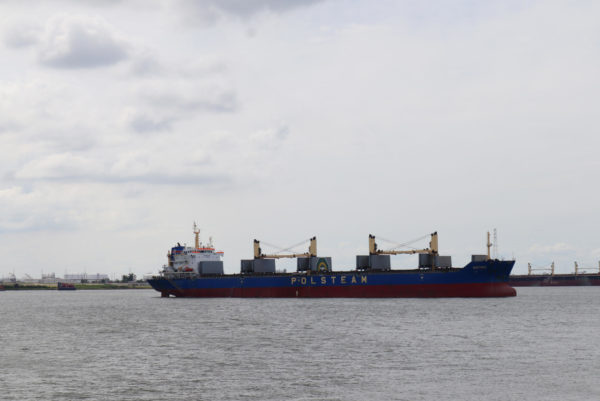
After a summer of heat and drought in Louisiana, the Mississippi River’s water levels are dropping, allowing salt water from the Gulf of Mexico to slowly trickle in and likely reach New Orleans drinking water in late October.
On Sept. 27, President Joe Biden declared the saltwater intrusion a federal emergency.
The reduced flow rate in the Mississippi River is driven by lack of rainfall. In August of last year, Jefferson Parish saw around 10 inches of rain compared to August this year, with only two inches of rain. In July, Louisiana was 20 inches below its usual amount of rainfall.
“I think it’s hard to have this conversation without considering what the weather patterns have been this year,” Stephen Murphy, professor and director of the Tulane University’s Disaster Management Program, said.
The threat of salt water in New Orleans is not unprecedented. It threatened New Orleans in 1988, when salt water rose up to Kenner, Louisiana but only lasted a few days because rainfall restored the river to normal conditions.
“The salt water has found a much easier path to continue marching forward; it’s heavier than freshwater, so it’s marching along the bottom of the riverbed,” Murphy said. “That happens quite a bit, but the flow rate of the river typically rebounds.”
Tulane released a statement on Tuesday that said the school is “closely coordinating with local and state officials on this issue” and that it is working on “plans to support our on- and off-campus students, including bottled water distribution if needed.”
The statement also said that New Orleans tap water is currently safe to drink. The salt water is expected to reach New Orleans in late October.
“It’s going slow enough that I think we can respond to it,” toxicology and environmental health professor Charles Miller said. “I don’t think you need to rush out and stock up on water or something like that. It’s a slow-rolling thing. It’s not like a fire or a hurricane or something that’s rapid.”
The Sewage and Water Board of New Orleans tests for chloride in the river and tap water every day to estimate salt levels before and after treatment for the Eastbank and Algiers. On Wednesday, the Eastbank tap had 52 parts per million and Algiers had 50 ppm. The high sodium water advisory is 250 ppm.
“Obviously, the salt water in your drinking water is an issue,” Murphy said. “The human body is pretty impressive, though. We tend to say around 200 to 250 ppm of the chloride in your water will be salty to your taste buds. That’s not necessarily unhealthy.”
The potential intrusion of salt water into drinking water does pose health risks. High levels of salt, or anything above 250 ppm, can make tap water unsafe for drinking and cooking. Risks are higher for more vulnerable groups like people with high blood pressure, kidney disease, people on a low-sodium diet, infants and pregnant women.
“Drinking salt water is not good for your health,” professor and climate adaptation expert Jesse Keenan said. “Just like you’re not supposed to eat a lot of salt in your diet. It’s the reason we don’t eat Chick-fil-A every day. Even very low levels of salt in the water are extremely problematic, indeed dangerous.”
Mayor LaToya Cantrell signed an Emergency Declaration on Sept. 22, which allows city agencies to “thoroughly prepare for and respond to any impending impacts.” It also allows for state and federal agencies to distribute resources if necessary.
“I do not think this is going to lead to something that is that catastrophic,” Murphy said. “It’s important to remember that we will have water … the water itself is not going to be cut off.”
On Sept. 25, the U.S. Army Corps of Engineers started raising the underwater sill that was installed in July to help delay the salt water. This construction is set to slow down the salt water by 10 to 15 days.
Orleans Parish is also constructing a pipeline to pump freshwater from upriver to its main water plant.
“If it’s a three-month duration event, and they cannot dilute the water, you’ve got a massive crisis on your hands,” Keenan said. “If they can dilute the water and it’s short in duration, then it’s not going to be that big of a deal.”


